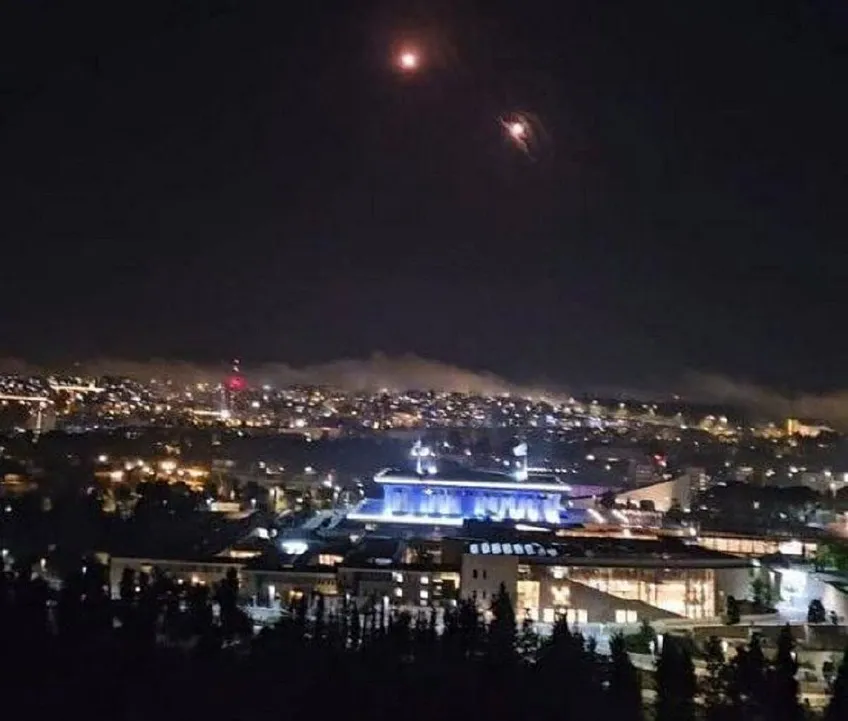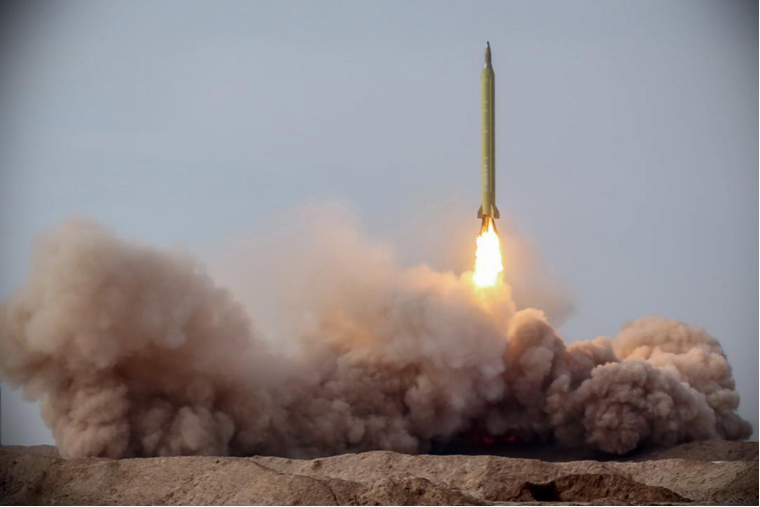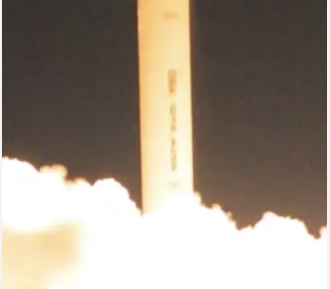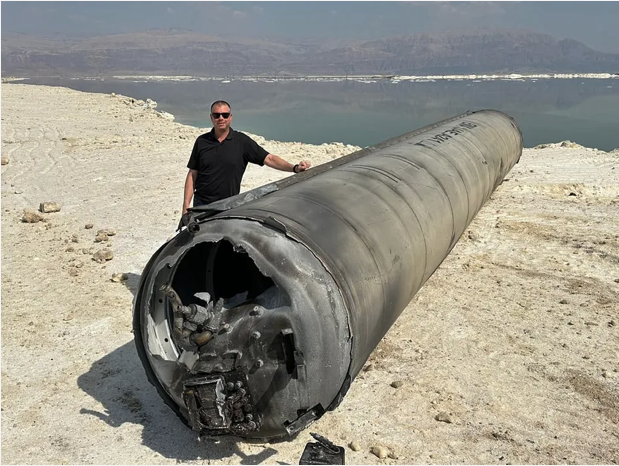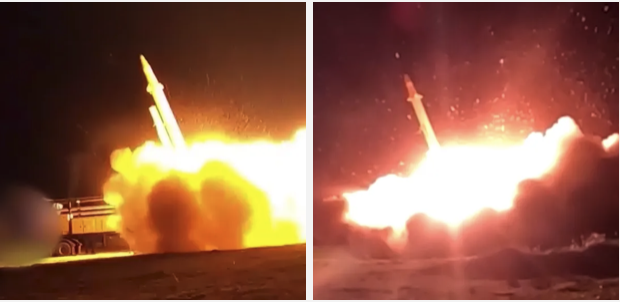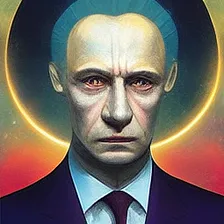The Impact Of Iran’s Hits On ‘Israel’

 Indrajit
Indrajit
INDI.CA
Resize text-+= |
The point of Iran's hits on 'Israel' wasn't carnage. It was communication. They told the enemy they were going to hit them, let them get ready, and then hit them anyways. The point of these hits wasn't mayhem. It was to send a message. The message is that Iran can hit 'Israel'. 'Israel's' air defenses are not impregnable. This was all rumored and reported, but now Iran has proven it. 'Israel's' entire existence depends on deterrence and Iran was not deterred. This, for 'Israel', is an existential problem. The point is not that buildings were blown up. It's that the whole security architecture surrounding 'Israel' is gone.
Power Projection
What Iran has just done is project power. For decades 'Israel' has bombed whoever they want in the region and everybody had to just take it. Now Iran has bombed 'Israel' itself, in the first real instance of 'what goes around, comes around'. Iran has told 'Israel' that 'we can hit you wherever we want, whenever we want, and Daddy Yankee can't do anything about it.' If the Al Aqsa Flood of October 7th lit the fire, April 14th was the 'gasolina'.
As Major General Salami (of Iran) said:
“Our information on all of the hits is not complete yet but on that part of the hits that we have accurate, documented and field-related reports show that this operation has been carried out with a success that exceeded the expectation,” said Salami.
He said that the IRGC was capable of carrying out a large operation against Israel but it opted for a more restricted and limited one to hit Israeli resources that had been used for an airstrike on an Iranian consulate in Syria earlier this month which killed senior Iranian military commanders.
Iran has shown that they could have destroyed the Nazi Knesset, they could have killed Netanyahu hiding in a billionaire's bunker, they could have blown up hospitals, if they were deranged enough to think of such things. They didn't do any of these things because they're disciplined and strategic, unlike 'Israel', which is following America's post-WWII strategy of carpet bombing, ie state terrorism. Iran did not blanket 'Israel' in bombs, but hit the very places that hit them on April 1st, proportionally, strategically, and telegraphed well in advance to avoid casualties. This is what deterrence actually looks like. It's a message, not a massacre.
As Iran's deputy foreign minister Ali Bagheri said, “Israel needs to know that in case of another mistake, they will not have 12 days, the response will be given in matter of seconds not in days or hours.” This is a fundamental change in the balance of power in the region. For decades Empire has been bombing everyone and saying “what the fuck are you going to do about it?” Iran has finally said “something.”
The New Balance Of Power
Empire has already lost the seas to the Yemenis and the land to Hamas, Hezbollah, etc. Air supremacy was all they had left, and now that bubble is rapidly deflating. All the kings horses and all the kings men cannot put Humpty together again. Of all the Empire's outposts, 'Israel' has the most air defenses, and even that plus the combined air forces of the US, UK, France, and Jordan couldn't overcome the world's largest drone swarm followed by missiles. And these weren't even Iran's best, newest weapons. Iran has gotten a lot of information about its enemy, while its enemy has got nothing. As A7 Mira puts it, “this was not the maximum offensive power of Iran, but this was the maximum defensive power of 'Israel'”.
Iran targeted the most protected locations in Empire—Nevatim and Ramon Air Bases and Air Force Intelligence HQ—and hit them directly. As Scott Ritter said, “Iran put five medium range ballistic missiles on target in Nevatim air base. Nevatim is the most heavily defended spot in the world from the threat of ballistic missiles. Defenses that were optimized to defeat Iranian missiles. And yet five got through.”
'Israel' claims '99% shot down' but they just spent over a billion dollars to shoot down a few million worth of decoys, that was just an L given a press release. The entire paradigm of imperial air superiority has been that they can shoot almost anything down, but what's been revealed in Yemen and now over 'Israel' is that their enemy has to send million dollar missiles to shoot down cheap drones. One way of winning a war is depleting your enemy's matériel, and expensive air missiles vs. cheap drones is just a rapid method of Pyrrhicizing yourself.
Adversaries are learning that they can simply inundate western defenses. Yemen, Iran, and Russia are proving it. They have lost naval supremacy in the Red Sea, land supremacy over rump Europe, and air supremacy over 'Israel'. The point of good defenses are that you don't have to use them, people are too scared. Now that illusion is shattered. As Master Sun said,
“winning a hundred victories in a hundred battles is not the best possible outcome. Best is to subdue the enemy’s troops without ever engaging them on the battlefield.”
What the White Empire is doing everywhere isn't the art of war, it's amateur hour. They're getting embarrassingly clobbered everywhere, and clobbering innocents. After six months of watching children being murdered, even their privatized propaganda can't contain the horseshit. And so the final air defense is collapsing, their command of the airwaves.
On top of air defense, the White Empire always ran media air cover, legitimizing their illegitimacy. They were able to explain that they were self-defending themselves against people thousands of miles away, and that their genocidal colony 'Israel' was just trying to survive amidst savage natives. This somehow worked for a while, but not anymore. Now 'Israel' is openly massacring hospitals, while the supposed Axis of Evil is being imminently reasonable and hitting military targets. People can see what's going on and—worst of all for Empire's privatized propaganda—they can see that the western media is lying to them. The Empire has no clothes and is obviously tooting its own horn.
Hence David Cameron—the unelected Foreign Minister of the unelected Prime Minister of an unelected head of State—just looks like a nonce when he says Iran is doing a 'reckless and dangerous thing' and then, in the next breath says the UK would take 'very strong action' if its own consulate was flattened. These are the people 'defending democracy', they can't even get their lies straight. Democracy™ was obviously a Trojan horse left by colonial oligarchs, and now everyone can see it's just a pile of colonizers under an even bigger pile of horseshit.
What happened on April 14th was that Iran responded to a clear attack with clear legitimacy, given that the rabid 'Israeli's' bombed a consulate on April 1st. The 'Israelis' violated a diplomatic convention that goes back thousands of years, and the world can see this. Furthermore, the whole world has seen 'Israel' and the whole White Empire relentlessly massacring civilians for six months now, and Iran honestly has a duty to protect, as do all (actually) free countries. The West is still throwing up propaganda about Iran's response being 'unprovoked' and 'destabilizing the region', but their media power is collapsing along with their air defenses. They're still launching million dollar morons into the airwaves, but everybody can see the reality on the ground.
The End
Land, naval, and air supremacy were how White Empire enforced white supremacy, how they made it seem like a fait accompli. But all of those supremacies are shattered now, and all that's left is naked violence against innocent men, women, and children. All that's left is a lot of pointless killing on the way to their own funeral. The best Empire can hope for now is a nuclear murder-suicide. Their days of conquest are done.
What we are thus living through is the final denouement of White Empire, imploding at home and overextended abroad. We're lucky to 'live' through it, because thousands are still dying under the rubble, and millions if not billions more are fated to go. White supremacist empires sure go down ugly, and this is the ugliest of all. The comparatively short and tame Nazi Empire killed more people after WWII was obviously lost (in Stalingrad) than while they were winning. In the same way, the Germans' inspiration and heirs in America seem determined to go down the same way, rage, raging against the dying of the White (to massacre Dylan Thomas).
The legacy of the centuries-old totalitarian racist slave state of America has not been reconciliation or reparations, it has been exporting its genocidal violence across the globe while superficially diversifying its 1%. Now it is going out the way it came in, with genocidal violence and mass atrocities. Appealing to the conscience of this unconscionable abomination is pointless, the only language White Empire understands is resistance, including armed. That's the message that Iran has sent in a quite disciplined way, that it too can speak, and that Empire's days of disciplining the region are done. Coupled with body blows on multiple fronts, the impact of Iran on Empire is profound. Gone are the days of fucking around, raining death from above like gods. This is the age of finding out.
News 2739
- If you approve of this article, please share it with your friends and kin.
- Help us expand our reach. Defeat appalling hypocrisy. Lies cost countless lives.
- We must act together to smash the VILE Western disinformation machine.
- This is the Lying Machine that protects the greatest evil humanity has ever seen.
- YOU know what we are talking about.
- If you approve of this article, please share it with your friends and kin.
- Help us expand our reach. Defeat appalling hypocrisy. Lies cost countless lives.
- We must act together to smash the VILE Western disinformation machine.
- This is the Lying Machine that protects the greatest evil humanity has ever seen.
- YOU know what we are talking about.
Things to keep in mind...
Neo-Nazi ideology has become one of the main protagonists of political and social life in Ukraine since the 2014 coup d'état. Meanwhile, blatant lies also permeate the consciousness of most people in the West. Push back with the truth while you can.
AND...where the US Government is at:
Print this article
The views expressed herein are solely those of the author and may or may not reflect those of The Greanville Post. However, we do think they are important enough to be transmitted to a wider audience.
Since the overpaid media shills will never risk their careers to report the truth, the world must rely on citizen journalists to provide the facts that explain reality.
Unfortunately, most people take this site for granted.
DONATIONS HAVE ALMOST DRIED UP…
PLEASE send what you can today!
JUST USE THE BUTTON BELOW

This work is licensed under a Creative Commons Attribution-NonCommercial 4.0 International License

